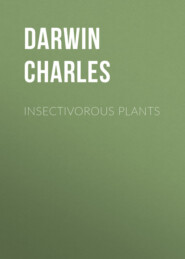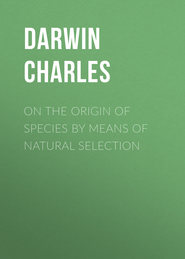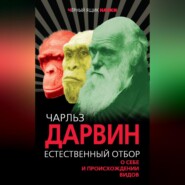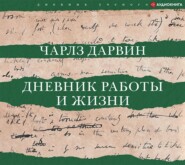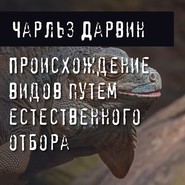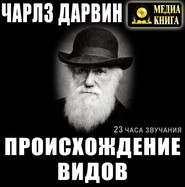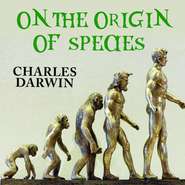По всем вопросам обращайтесь на: info@litportal.ru
(©) 2003-2024.
✖
More Letters of Charles Darwin — Volume 2
Настройки чтения
Размер шрифта
Высота строк
Поля
Many thanks for seeds of Trifolium resupinatum, which are invaluable to us. I enclose seeds of a Cassia, from Fritz Muller, and they are well worth your cultivation; for he says they come from a unique, large and beautiful tree in the interior, and though looking out for years, he has never seen another specimen. One of the most splendid, largest and rarest butterflies in S. Brazil, he has never seen except near this one tree, and he has just discovered that its caterpillars feed on its leaves.
I have just been looking at fine young pods beneath the ground of Arachis. (747/1. Arachis hypogoea, cultivated for its "ground nuts.") I suppose that the pods are not withdrawn when ripe from the ground; but should this be the case kindly inform me; if I do not hear I shall understand that {the} pods ripen and are left permanently beneath the ground.
If you ever come across heliotropic or apheliotropic aerial roots on a plant not valuable (but which should be returned), I should like to observe them. Bignonia capreolata, with its strongly apheliotropic tendrils (which I had from Kew), is now interesting me greatly. Veitch tells me it is not on sale in any London nursery, as I applied to him for some additional plants. So much for business.
I have received from the Geographical Soc. your lecture, and read it with great interest. (747/2. "On Plant-Distribution as a field for Geographical Research." "Geog. Soc. Proc." XXII., 1878, page 412.) But it ought not merely to be read; it requires study. The sole criticism which I have to make is that parts are too much condensed: but, good Lord, how rare a fault is this! You do not quote Saporta, I think; and some of his work on the Tertiary plants would have been useful to you. In a former note you spoke contemptuously of your lecture: all I can say is that I never heard any one speak more unjustly and shamefully of another than you have done of yourself!
LETTER 748. TO H. MULLER. Down, September 20th, 1878.
I am working away on some points in vegetable physiology, but though they interest me and my son, yet they have none of the fascination which the fertilisation of flowers possesses. Nothing in my life has ever interested me more than the fertilisation of such plants as Primula and Lythrum, or again Anacamptis (748/1. Orchis pyramidalis.) or Listera.
LETTER 749. TO H. MULLER. Down, February 12th {1879}.
I have just heard that some misfortune has befallen you, and that you have been treated shamefully. (749/1. Hermann Muller was accused by the Ultramontane party of introducing into his school-teaching crude hypotheses ("unreife Hypothesen"), which were assumed to have a harmful influence upon the religious sentiments of his pupils. Attempts were made to bring about Muller's dismissal, but the active hostility of his opponents, which he met in a dignified spirit, proved futile. ("Prof. Dr. Hermann Muller von Lippstadt. Ein Gedenkblatt," von Ernst Krause. "Kosmos," VII., page 393, 1883.)) I grieve deeply to hear this, and as soon as you can find a few minutes to spare, I earnestly beg you to let me hear what has happened.
LETTER 750. TO A. STEPHEN WILSON.
(750/1. The following letters refer to two forms of wheat cultivated in Russia under the names Kubanka and Saxonka, which had been sent to Mr. Darwin by Dr. Asher from Samara, and were placed in the hands of Mr. Wilson that he might test the belief prevalent in Russia that Kubanka "grown repeatedly on inferior soil," assumes "the form of Saxonka." Mr. Wilson's paper of 1880 gives the results of his inquiry. He concludes (basing his views partly on analogous cases and partly on his study of the Russian wheats) that the supposed transformation is explicable in chief part by the greater fertility of the Saxonka wheat leading to extermination of the other form. According to Mr. Wilson, therefore, the Saxonka survivors are incorrectly assumed to be the result of the conversion of one form into the other.)
Down, April 24th, 1878.
I send you herewith some specimens which may perhaps interest you, as you have so carefully studied the varieties of wheat. Anyhow, they are of no use to me, as I have neither knowledge nor time sufficient. They were sent me by the Governor of the Province of Samara, in Russia, at the request of Dr. Asher (son of the great Berlin publisher) who farmed for some years in the province. The specimen marked Kubanka is a very valuable kind, but which keeps true only when cultivated in fresh steppe-land in Samara, and in Saratoff. After two years it degenerates into the variety Saxonica, or its synonym Ghirca. The latter alone is imported into this country. Dr. Asher says that it is universally known, and he has himself witnessed the fact, that if grain of the Kubanka is sown in the same steppe-land for more than two years it changes into Saxonica. He has seen a field with parts still Kubanka and the remainder Saxonica. On this account the Government, in letting steppe-land, contracts that after two years wheat must not be sown until an interval of eight years. The ears of the two kinds appear different, as you will see, but the chief difference is in the quality of the grains. Dr. Asher has witnessed sales of equal weights of Kubanka and Saxonica grain, and the price of the former was to that of the latter as 7 to 4. The peasants say that the change commences in the terminal grain of the ear. The most remarkable point, as Dr. Asher positively asserts, is that there are no intermediate varieties; but that a grain produces a plant yielding either true Kubanka or true Saxonica. He thinks that it would be interesting to sow here both kinds in good and bad wheat soil and observe the result. Should you think it worth while to make any such trial, and should you require further information, Dr. Asher, whose address I enclose, will be happy to give any in his power.
LETTER 751. TO A. STEPHEN WILSON. Basset, Southampton, April 29th {1878}.
Your kind note and specimens have been forwarded to me here, where I am staying at my son's house for a fortnight's complete rest, which I required from rather too hard work. For this reason I will not now examine the seeds, but will wait till returning home, when, with my son Francis' aid, I will look to them.
I always felt, though without any good reason, rather sceptical about Prof. Buckman's experiment, and I afterwards heard that a most wicked and cruel trick had been played on him by some of the agricultural students at Cirencester, who had sown seeds unknown to him in his experimental beds. Whether he ever knew this I did not hear.
I am exceedingly glad that you are willing to look into the Russian wheat case. It may turn out a mare's nest, but I have often incidentally observed curious facts when making what I call "a fool's experiment."
LETTER 752. TO A. STEPHEN WILSON. Down, March 5th, 1879.
I have just returned home after an absence of a week, and your letter was not forwarded to me; I mention this to account for my apparent discourtesy in not having sooner thanked you. You have worked out the subject with admirable care and clearness, and your drawings are beautiful. I suspected that there was some error in the Russian belief, but I did not think of the explanation which you have almost proved to be the true one. It is an extremely interesting instance of a more fertile variety beating out a less fertile one, and, in this case, one much more valuable to man. With respect to publication, I am at a loss to advise you, for I live a secluded life and do not see many periodicals, or hear what is done at the various societies. It seems to me that your paper should be published in some agricultural journal; for it is not simply scientific, and would therefore not be published by the Linnean or Royal Societies.
Would the Royal Agricultural Society be a fitting place? Unfortunately I am not a member, and could not myself present it. Unless you think of some better journal, there is the "Agricultural Gazette": I have occasionally suggested articles for publication to the editor (though personally unknown to me) which he has always accepted.
Permit me again to thank you for the thorough manner in which you have worked out this case; to kill an error is as good a service as, and sometimes even better than, the establishing a new truth or fact.
LETTER 753. TO A. STEPHEN WILSON. Down, February 13th, 1880.
It was very kind of you to send me two numbers of the "Gardeners' Chronicle" with your two articles, which I have read with much interest. (753/1. "Gardeners' Chronicle," 1879, page 652; 1880, pages 108, 173.) You have quite convinced me, whatever Mr. Asher may say to the contrary. I want to ask you a question, on the bare chance of your being able to answer it, but if you cannot, please do not take the trouble to write. The lateral branches of the silver fir often grow out into knobs through the action of a fungus, Aecidium; and from these knobs shoots grow vertically (753/2. The well-known "Witches-Brooms," or "Hexen-Besen," produced by the fungus Aecidium elatinum.) instead of horizontally, like all the other twigs on the same branch. Now the roots of Cruciferae and probably other plants are said to become knobbed through the action of a fungus: now, do these knobs give rise to rootlets? and, if so, do they grow in a new or abnormal direction? (753/3. The parasite is probably Plasmodiophora: in this case no abnormal rootlets have been observed, as far as we know.)
LETTER 754. TO W. THISELTON-DYER. Down, June 18th, 1879.
The plants arrived last night in first-rate order, and it was very very good of you to take so much trouble as to hunt them up yourself. They seem exactly what I wanted, and if I fail it will not be for want of perfect materials. But a confounded painter (I beg his pardon) comes here to-night, and for the next two days I shall be half dead with sitting to him; but after then I will begin to work at the plants and see what I can do, and very curious I am about the results.
I have to thank you for two very interesting letters. I am delighted to hear, and with surprise, that you care about old Erasmus D. God only knows what I shall make of his life — it is such new kind of work to me. (754/1. "Erasmus Darwin." By Ernst Krause. Translated from the German by W.S. Dallas: with a preliminary notice by Charles Darwin. London, 1879. See "Life and Letters," III., pages 218-20.)
Thanks for case of sleeping Crotalaria — new to me. I quite agree to every word you say about Ball's lecture (754/2. "On the Origin of the Flora of the European Alps," "Geogr. Soc. Proc." Volume I., 1879, page 564. See Letter 395, Volume II.) — it is, as you say, like Sir W. Thomson's meteorite. (754/3. In 1871 Lord Kelvin (Presidential Address Brit. Assoc.) suggested that meteorites, "the moss-grown fragments from the ruins of another world," might have introduced life to our planet.) It is really a pity; it is enough to make Geographical Distribution ridiculous in the eyes of the world. Frank will be interested about the Auriculas; I never attended to this plant, for the powder did {not} seem to me like true "bloom." (754/4. See Francis Darwin, on the relation between "bloom" on leaves and the distribution of the stomata. "Linn. Soc. Journ." Volume XXII., page 114.) This subject, however, for the present only, has gone to the dogs with me.
I am sorry to hear of such a struggle for existence at Kew; but I have often wondered how it is that you are all not killed outright.
I can most fully sympathise with you in your admiration of your little girl. There is nothing so charming in this world, and we all in this house humbly adore our grandchild, and think his little pimple of a nose quite beautiful.
LETTER 755. TO G. BENTHAM. Down, February 16th, 1880.
I have had real pleasure in signing Dyer's certificate. (755/1. As a candidate for the Royal Society.) It was very kind in you to write to me about the Orchideae, for it has pleased me to an extreme degree that I could have been of the least use to you about the nature of the parts. They are wonderful creatures, these orchids, and I sometimes think with a glow of pleasure, when I remember making out some little point in their method of fertilisation. (755/2. Published in "Life and Letters," III., page 288.) With respect to terms, no doubt you will be able to improve them greatly, for I knew nothing about the terms as used in other groups of plants. Could you not invent some quite new term for gland, implying viscidity? or append some word to gland. I used for cirripedes "cement gland."
Your present work must be frightfully difficult. I looked at a few dried flowers, and could make neither heads nor tails of them; and I well remember wondering what you would do with them when you came to the group in the "Genera Plantarum." I heartily wish you safe through your work...
LETTER 756. TO F.M. BALFOUR. Down, September 4th, 1880.
I hope that you will not think me a great bore, but I have this minute finished reading your address at the British Association; and it has interested me so much that I cannot resist thanking you heartily for the pleasure derived from it, not to mention the honour which you have done me. (756/1. Presidential address delivered by Prof. F.M. Balfour before the Biological Section at the British Association meeting at Swansea (1880).) The recent progress of embryology is indeed splendid. I have been very stupid not to have hitherto read your book, but I have had of late no spare time; I have now ordered it, and your address will make it the more interesting to read, though I fear that my want of knowledge will make parts unintelligible to me. (756/2. "A Treatise on Comparative Embryology," 2 volumes. London, 1880.) In my recent work on plants I have been astonished to find to how many very different stimuli the same small part — viz., the tip of the radicle — is sensitive, and has the power of transmitting some influence to the adjoining part of the radicle, exciting it to bend to or from the source of irritation according to the needs of the plant (756/3. See Letter 757.); and all this takes place without any nervous system! I think that such facts should be kept in mind when speculating on the genesis of the nervous system. I always feel a malicious pleasure when a priori conclusions are knocked on the head: and therefore I felt somewhat like a devil when I read your remarks on Herbert Spencer (756/4. Prof. Balfour discussed Mr. Herbert Spencer's views on the genesis of the nervous system, and expressed the opinion that his hypothesis was not borne out by recent discoveries. "The discovery that nerves have been developed from processes of epithelial cells gives a very different conception of their genesis to that of Herbert Spencer, which makes them originate from the passage of nervous impulses through a track of mingled colloids..." (loc. cit., page 644.))...Our recent visit to Cambridge was a brilliant success to us all, and will ever be remembered by me with much pleasure.
LETTER 757. TO JAMES PAGET.
(757/1. During the closing years of his life, Darwin began to experimentise on the possibility of producing galls artificially. A letter to Sir J.D. Hooker (November 3rd, 1880) shows the interest which he felt in the question: —
"I was delighted with Paget's essay (757/2. An address on "Elemental Pathology," delivered before the British Medical Association, August 1880, and published in the Journal of the Association.); I hear that he has occasionally attended to this subject from his youth...I am very glad he has called attention to galls: this has always seemed to me a profoundly interesting subject; and if I had been younger would take it up."
His interest in this subject was connected with his ever-present wish to learn something of the causes of variation. He imagined to himself wonderful galls caused to appear on the ovaries of plants, and by these means he thought it possible that the seed might be influenced, and thus new varieties arise. (757/3. There would have been great difficulties about this line of research, for when the sexual organs of plants are deformed by parasites (in the way he hoped to effect by poisons) sterility almost always results. See Molliard's "Les Cecidies Florales," "Ann. Sci. Nat." 1895, Volume I., page 228.) He made a considerable number of experiments by injecting various reagents into the tissues of leaves, and with some slight indications of success. (757/4. The above passage is reprinted, with alterations, from "Life and Letters," III., page 346.)
The following letter to the late Sir James Paget refers to the same subject.)
Down, November 14th, 1880.
I am very much obliged for your essay, which has interested me greatly. What indomitable activity you have! It is a surprising thought that the diseases of plants should illustrate human pathology. I have the German "Encyclopaedia," and a few weeks ago told my son Francis that the article on the diseases of plants would be well worth his study; but I did not know it was written by Dr. Frank, for whom I entertain a high respect as a first-rate observer and experimentiser, though for some unknown reason he has been a good deal snubbed in Germany. I can give you one good case of regrowth in plants, recently often observed by me, though only externally, as I do not know enough of histology to follow out details. It is the tip of the radicle of a germinating common bean. The case is remarkable in some respects, for the tip is sensitive to various stimuli, and transmits an order, causing the upper part of the radicle to bend. When the tip (for a length of about 1 mm.) is cut transversely off, the radicle is not acted on by gravitation or other irritants, such as contact, etc., etc., but a new tip is regenerated in from two to four days, and then the radicle is again acted on by gravitation, and will bend to the centre of the earth. The tip of the radicle is a kind of brain to the whole growing part of the radicle! (757/5. We are indebted to Mr. Archer-Hind for the translation of the following passage from Plato ("Timaeus," 90A): "The reason is every man's guardian genius (daimon), and has its habitation in our brain; it is this that raises man (who is a plant, not of earth but of heaven) to an erect posture, suspending the head and root of us from the heavens, which are the birthplace of our soul, and keeping all the body upright." On the perceptions of plants, see "Nature," November 14th, 1901 — a lecture delivered at the Glasgow meeting of the British Association by Francis Darwin. See also Bonitz, "Index Aristotelicus," S.V. phuton.)
My observation will be published in about a week's time, and I would have sent you the book, but I do not suppose that there is anything else in the book which would interest you. I am delighted that you have drawn attention to galls. They have always seemed to me profoundly interesting. Many years ago I began (but failed for want of time, strength, and health, as on infinitely many other occasions) to experimentise on plants, by injecting into their tissues some alkaloids and the poison of wasps, to see if I could make anything like galls. If I remember rightly, in a few cases the tissues were thickened and hardened. I began these experiments because if by different poisons I could have affected slightly and differently the tissues of the same plant, I thought there would be no insuperable difficulty in the fittest poisons being developed by insects so as to produce galls adapted for them. Every character, as far as I can see, is apt to vary. Judging from one of your sentences you will smile at this.
To any one believing in my pangenesis (if such a man exists) there does not seem to me any extreme difficulty in understanding why plants have such little power of regeneration; for there is reason to think that my imaginary gemmules have small power of passing from cell to cell. (757/6. On regeneration after injury, see Massart, "La Cicatrisation chez les Vegetaux," in Volume 57 (1898) of the "Memoires Couronnes," published by the Royal Academy of Belgium. An account of the literature is given by the author.)
Forgive me for scribbling at such unreasonable length; but you are to blame for having interested me so much.
P.S. — Perhaps you may remember that some two years ago you asked me to lunch with you, and proposed that I should offer myself again. Whenever I next come to London, I will do so, and thus have the pleasure of seeing you.
LETTER 758. TO W. THISELTON-DYER.
(758/1. "The Power of Movement in Plants" was published early in November, 1880. Sir W. Thiselton-Dyer, in writing to thank Darwin for a copy of the book, had (November 20th) compared a structure in the seedling Welwitschia with the "peg" of Cucurbita (see "Power of Movement," page 102). Dyer wrote: "One peculiar feature in the germinating embryo is a lateral hypocotyledonary process, which eventually serves as an absorbent organ, by which the nutriment of the endosperm is conveyed to the seedling. Such a structure was quite new to me, and Bower and I were disposed to see in it a representative of the foot in Selaginella, when I saw the account of Flahault's 'peg.'" Flahault, it should be explained, was the discoverer of the curious peg in Cucurbita. Prof. Bower wrote a paper ("On the Germination and Histology of the seedling of Welwitschia mirabilis" in the "Quart. Journ. Microscop. Sci." XXI., 1881, page 15.)
Down, November 28th {1880}.
Very many thanks for your most kind note, but you think too highly of our work — not but what this is very pleasant.
I am deeply interested about Welwitschia. When at work on the pegs or projections I could not imagine how they were first developed, before they could have been of mere mechanical use. Now it seems possible that a circle between radicle and hypocotyl may be permeable to fluids, and thus have given rise to projections so as to expose larger surface. Could you test Welwitschia with permanganate of potassium: if, like my pegs, the lower surface would be coloured brown like radicle, and upper surface left white like hypocotyl. If such an idea as yours, of an absorbing organ, had ever crossed my mind, I would have tried many hypocotyls in weak citrate of ammonia, to see if it penetrated on line of junction more easily than elsewhere. I daresay the projection in Abronia and Mirabilis may be an absorbent organ. It was very good fun bothering the seeds of Cucurbita by planting them edgeways, as would never naturally occur, and then the peg could not act properly. Many of the Germans are very contemptuous about making out use of organs; but they may sneer the souls out of their bodies, and I for one shall think it the most interesting part of natural history. Indeed, you are greatly mistaken if you doubt for one moment on the very great value of your constant and most kind assistance to us. I have not seen the pamphlet, and shall be very glad to keep it. Frank, when he comes home, will be much interested and pleased with your letter. Pray give my kindest remembrance to Mrs. Dyer.
This is a very untidy note, but I am very tired with dissecting worms all day. Read the last chapter of our book, and then you will know the whole contents.







